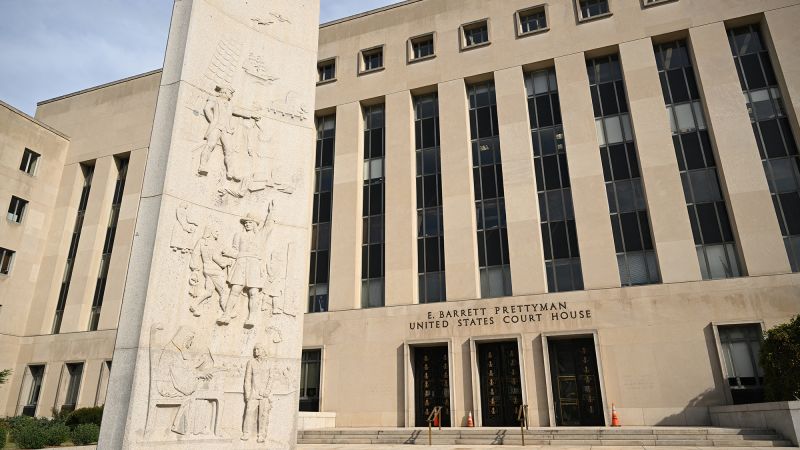CNN
—
A divided federal appeals court has maintained a temporary block on President Donald Trump’s ability to use the Alien Enemies Act to quickly deport alleged members of a Venezuelan gang.
The DC Circuit Court of Appeals panel ruled 2-1 on Wednesday that a pair of lower-court orders blocking Trump’s use of the sweeping wartime authority can stand while a legal challenge to the president’s invocation of the law plays out.
Judge James Boasberg’s order blocking use of the Alien Enemies Act for deportations has been at the center of an escalating political and legal controversy since it was issued on the evening of March 15. Two flights of people being deported took off during an emergency hearing and did not turn around, leading to ongoing questions of whether his court order was intentionally ignored.
Since then, the Justice Department and Boasberg have gone back and forth over DOJ’s refusal to provide more information about the flights, and Trump suggested that Boasberg be impeached. That led to a rare rebuke from Chief Justice John Roberts.
Trump had invoked the Alien Enemies Act of 1798, which gives the president tremendous authority to target and remove undocumented immigrants, to speed up the deportations of migrants. The law is designed to be invoked if the US is at war with another country, or a foreign nation has invaded the US or threatened to do so.
Wednesday’s appeals court ruling was unsigned. But Judges Patricia Millett, an appointee of former President Barack Obama, and Karen Henderson, an appointee of former President George H.W. Bush, wrote lengthy opinions explaining why they agreed with the court’s decision.
Henderson leaned into the argument that allowing Trump to use the law — even as the case proceeded — “risks exiling plaintiffs to a land that is not their country of origin” where they would face torture in notorious prisons.

Photographer with exclusive access to El Salvador prison explains what he witnessed
“Indeed, at oral argument before this Court, the government in no uncertain terms conveyed that – were the injunction lifted – it would immediately begin deporting plaintiffs without notice,” Henderson wrote. “Plaintiffs allege that the government has renditioned innocent foreign nationals in its pursuit against TdA. For example, one plaintiff alleges that he suffered brutal torture with ‘electric shocks and suffocation’ for demonstrating against the Venezuelan regime.”
Judge Justin Walker, who was named to the bench by Trump during his first term, dissented, focusing on a technical issue he raised during the oral arguments in the case. Walker said the claims filed by those deported needed to go to a court in Texas rather than in Washington, DC.
The Trump administration, he said, had shown “that the district court’s orders threaten irreparable harm to delicate negotiations with foreign powers on matters concerning national security.”
And that harm, Walker said, “plus the asserted public interest in swiftly removing dangerous aliens,” outweighs the plaintiffs’ desire to file the suit in Washington.
The Trump administration is expected to appeal the ruling to the US Supreme Court.
This story is breaking and will be updated.

